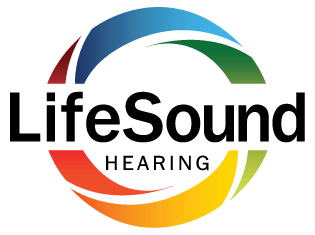
The typical summer day is likely filled with fun activities and happenings, from motorcycle rides to family outings to fireworks to sporting events. And while the majority of these activities are healthy, many can present invisible risks to your hearing health. That’s because loud noises, over time, can harm your ability to hear. A loud motorcycle engine or a roaring crowd could be contributing to long-term, noise-induced hearing loss.
What is noise-related hearing loss? This condition occurs when excessively loud noises, over time, cause damage to your hearing. As a consequence, you experience hearing loss. This type of hearing loss is irreversible.
There is no cure, though this type of hearing loss can be effectively controlled. Raising your awareness of these common loud noises can help you better control risks and formulate prevention strategies, so you can protect your hearing over the long run. With a few simple adjustments, you can enjoy your summer fun and protect your hearing health.
Is it really that loud during the summer?
Summer might be one of those times of year in which noise hazards are easiest to miss. Some of the most prevalent hazardously loud noises include the following:
- Sporting events: Any time you’re in noisy crowds, you may increase your risk of noise damage (this can be even more relevant at sporting events that feature motorized attractions, including a Nascar race or monster truck rally).
- Driving: Going for a Sunday drive is very popular, but the wind rushing through your windows (or all around you if you’re driving a convertible) can be tough on your ears. This is particularly true if the sound occurs for long durations without breaks.
- Loud concerts: Concerts put your hearing at risk even if they are outside concerts. After all, these events are planned to be as loud as possible.
- Routine lawn care: Included in this category are chainsaws, weed wackers, leaf blowers, and lawnmowers. The powerful motors in many of these mechanical tools are extremely loud. It’s worth pointing out that totally electric motors are usually quieter.
- Fireworks events: Many towns have fireworks displays every month or more during the summer. From neighborhood gatherings to holiday celebrations to sporting events, fireworks displays are everywhere during the summer months. Unfortunately, fireworks are incredibly loud and can definitely cause damage to your ears.
- Routine use of power tools: Summer is an ideal time for home improvement projects. But it’s important to remember that all of those power tools can be quite noisy. The more you use these tools, the more your hearing hazard increases.
Generally speaking, sounds above 85dB are considered to be damaging. This is about the volume of a lawnmower, hair dryer, or a typical blender. That’s significant to note because these sounds may not feel particularly noisy. But the volume of these devices can result in hearing damage over time.
How can I prevent noise-induced hearing loss?
Every year, millions of people are affected by hearing loss. And, unlike age-related hearing loss, noise-related hearing loss can occur at any age. Prevention is important for this precise reason. Some of the most reliable prevention strategies include the following:
- Get your hearing checked: Hearing loss typically doesn’t happen all of a sudden. Many people won’t detect the symptoms for months or years. Frequently, the only way to find out whether you have any noise-related hearing loss is to have your hearing examined. We will help you comprehend how to keep your hearing healthy for years to come and discuss treatment options for any hearing loss you may already have.
- Download a sound level detection app to your phone: 85 dB may not seem like a lot, but you would most likely be surprised how fast sounds can increase above that minimum threshold. Even your earbuds and headphones can start to do damage at these volume levels. You can become more aware of when volume levels begin to get too loud by downloading a volume monitoring app for your cellphone.
- Give your ears a break (and time to recover): If you went to a loud fireworks show, make sure your next day is a quiet one. Additional and more significant damage can be prevented by giving your ears an opportunity to rest and recover.
- Wear hearing protection: If you cannot avoid noisy environments (or don’t want to miss out on certain enjoyable activities), you can get a pair of quality ear muffs or ear plugs. Use this hearing protection whenever you need to, when you are in situations that are noisy. Damage can be avoided in this way. You can be especially benefited by utilizing hearing protection costume made for you.
- Limit your time in noisy environments: The more noisy the environment, the more you should limit your time. This can help protect against long-term damage to your hearing. Every thirty minutes or so, when you’re at a loud sporting event, for example, go and spend some time in a less noisy area.
- Use disposable earplugs when you have to: Utilizing disposable earplugs might not be as effective as customized earplugs but, in a pinch, they’re better than no protection at all. If you find yourself suddenly in a noisy environment, a cheap set of disposable earplugs can help prevent significant hearing damage.
- Turn down the volume at home: Your ears can get a rest by simply turning down the volume on your devices. When everything is loud all the time, damage can develop more quickly.
Noise-induced hearing loss is not unavoidable. Prevention strategies can help maintain your hearing. You can safeguard your hearing and enjoy fun activities in any season with the correct approach.
Start your journey towards better hearing by contacting us for an appointment.
[blogcta]
